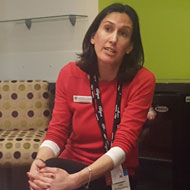VPIS launches new helpline for pet owners

Nicola Robinson said owners will not be advised on treatment, but will be told whether or not they need to see a vet and how urgently.
The Veterinary Poisons Information Service (VPIS) has announced the official launch of a new helpline for pet owners.
Animal PoisonLine is a triage service that tells owners whether or not a trip to the vets is necessary when their pet has been exposed to something potentially poisonous. It was introduced by VPIS head of service, Nicola Robinson, during a press briefing at BSAVA Congress last week, and opened officially on Monday (10 April).
VPIS first established the helpline as part of a pilot scheme back in September 2016. The line is now available 24 hours a day at a cost of £20 from 8am-8pm Monday to Friday (excluding bank holidays) and £30 outside of these hours.
Nicola Robinson said owners will not be advised on treatment, but will be told whether or not they need to see a vet and how urgently. Experience gained from the pilot suggests that in around 50 per cent of cases, owners will not need to go to their vet.
She said the VPIS had concerns about pet owners using Google to determine if a substance is toxic, and felt that a specific service was needed to provide owners with accurate advice and reassurance. Animal PoisonLine may also help vets to use their VPIS credits more appropriately if owners seek advice from the VPIS first, she added.
Vets should continue to use the normal VPIS number, 0207 3055 055, for poisoning cases and admin enquiries, while owners can be directed to the Animal PoisonLine number, 01202 509 000.
For further information visit: https://vpisglobal.com/2016/08/23/vpis-public-helpline/



 The latest
The latest